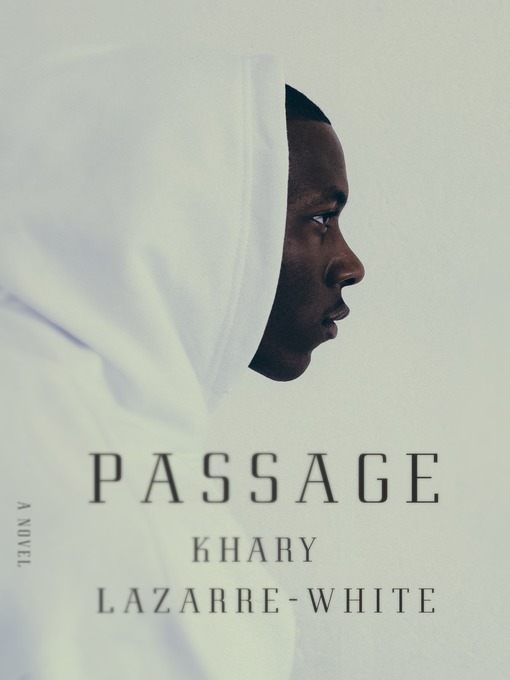
Passage
فرمت کتاب
ebook
تاریخ انتشار
2017
نویسنده
Khary Lazarre-Whiteناشر
Seven Stories Pressشابک
9781609807849
کتاب های مرتبط
- اطلاعات
- نقد و بررسی
- دیدگاه کاربران
نقد و بررسی

July 24, 2017
In his debut novel, lawyer and activist Lazarre-White describes the day-to-day life of Warrior, a high school kid in 1993 Harlem, who is black, smart, responsible, and thoughtful, with kind parents, an adorable little sister, and the perfect girlfriend. Warrior, though, is also angry—about the cops, about his teachers, and about the fact that his friend is in prison. But instead of breathing life into Warrior’s reality or providing for him a voice that would resonate with readers, the writing is clichéd, the dialogue especially wooden. Talking with his mother one morning, Warrior says, “Mamma, I have parents who have taught me well. I know the importance of blood and love.” To which she responds, “Part of being a mother, my wise son, is telling and retelling. It’s what we’ve done since the beginning of time.” Most of the book’s parental interactions are like this—one step away from sage, Yoda-style homilies. Warrior’s father also lacks dimension: he lives in Brooklyn, in a brownstone where he listens to jazz and cooks Caribbean food, and seems to care only about the Knicks. One snowy day, Warrior walks outside his mother’s apartment to find their Harlem neighborhood swarming with cops—a boy has been shot and people are rioting. But even this tension and violence are presented in flat, stale prose.

August 15, 2017
A teen wanders through a racially charged, dystopian New York City in this debut novel.Writer and activist Lazarre-White writes of Warrior, a black teen questioning his place in the world in 1993. Warrior is prone to visions in which he encounters demons, a "claw," "wolves," and voices from the African-American diaspora. His only law is confrontation. "If there's something you fear," the voices tell him, "if there's a nightmare on your heels, don't run." In a nightmarish echo of Holden Caulfield's journey, Warrior wanders the city, remarking on its various characters and institutions. Police are "blue soldiers" bent on destruction of black bodies. Schools acutely focus pain and racial inequality; Warrior's is a place where he is both underserved and vexed by well-meaning teachers. "She thinks I'm gonna tell her a damn thing about me, like I'm a damn experiment," he says. While Warrior's rage against systematic racism imbues the narrative, the characters lack important dimension that would allow for deeper confrontation of the issues at hand. As a protagonist, Warrior is uncomplicated and static; other characters function only to highlight his heroism. Other issues arise out of unclear mysticism and clunky, forced similes. "It was a darkness," Lazarre-White writes, for example, "like the kind you find in dense, overgrown woods, in the Deep South." Conclusions are too easily drawn ("he learned his true lessons through the countless books he read...the education that comes with living"), and the book never moves beyond the symbolic representation of systemic racism and bias.These are issues that must be discussed. But while misunderstanding and violence haunt Warrior's visions, this slim volume does not quite do justice to its subject matter.
COPYRIGHT(2017) Kirkus Reviews, ALL RIGHTS RESERVED.

September 1, 2017
Over the course of a few winter days in New York, 1993, a teenager moves along his well-worn path between Harlem and Brooklyn. His parents, a teacher and a musician who are loving but divorced, named him with an Akan word meaning warrior for one's people, but everyone just calls him Warrior. Mature, wise, and strong, Warrior is close to his family but has been let down by his schooling, among other things. As he goes to school, visits his dad, or makes a snowman with his much younger sister, he's interrupted often by his own internal conversations. He thinks of his best friend, who's in jail after being brutally beaten by blue soldiers; converses with spirits; and voices the injustices he can't say out loud. As Warrior experiences dangers real and imagined, current and ancestral, Lazarre-White, activist and founder of a Harlem-based youth-education organization, infuses his vivid journey with thought- and discussion-provoking symbolism. This is a unique and haunting portrayal of a young black man considering his inheritance, and his destiny.(Reprinted with permission of Booklist, copyright 2017, American Library Association.)

























دیدگاه کاربران